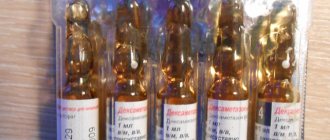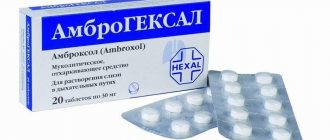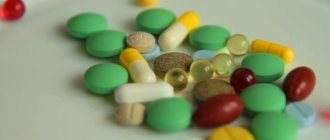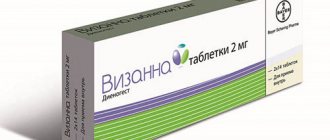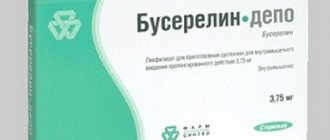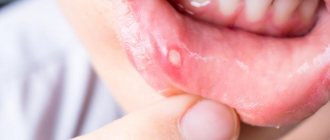Betadine is an antiseptic and disinfectant drug for local and external use.
Released from the complex with polyvinylpyrrolidone upon contact with the skin and mucous membranes, iodine forms iodamines with bacterial cell proteins, coagulates them and causes the death of microorganisms.
On this page you will find all the information about Betadine: complete instructions for use for this drug, average prices in pharmacies, complete and incomplete analogues of the drug, as well as reviews of people who have already used Betadine. Would you like to leave your opinion? Please write in the comments.
Release form and composition
Betadine is available in the following dosage forms:
- 10% ointment for external use in aluminum tubes of 20 g, one tube in a cardboard box. 1 g of Betadine ointment contains 100 mg of povidone-iodine and auxiliary components (macrogol - 400, 1000 and 4000, sodium bicarbonate and purified water);
- 10% solution for local and external use in dropper bottles of 30 and 120 ml (in cardboard boxes) or 1000 ml (without box). The main active ingredient of the drug is povidone-iodine (100 mg in 1 ml of solution), and the auxiliary ingredients are glycerin, anhydrous citric acid, nonoxynol 9, sodium hydroxide 10%, disodium dihydrogen phosphate and purified water;
- Vaginal suppositories are dark brown in color and torpedo-shaped. One suppository contains 200 mg of povidone-iodine and macrogol 1000 as an excipient. The candles are packed in blisters of 7 pieces, in a cardboard pack there are 1 or 2 blisters.
Features of use for chickenpox
The solution of this drug is for topical application only. If the skin and mucous membranes are hypersensitive to the active substance, the solution can be diluted with cold water. It is prohibited to use hot water for dilution. The remains of the diluted product are not reused.
The solution is applied to the blisters using a cotton swab and the liquid is allowed to dry completely. Treatment is carried out twice a day, maintaining an eight-hour interval between applications.
Important! The yellow trace of the medicine gradually disappears as the medicine is absorbed into the skin.
Indications for using the ointment are the same as for the solution. The ointment is applied in a thin layer to the blisters, being careful not to damage them. The procedure is performed twice a day. Duration of therapy – 15 days.
To enhance the medicinal effect of the ointment, the treated areas are covered with gauze. The bandage will protect damaged areas of the skin from contact with bedding and clothing.
Instructions for the use of Taktivin injections and analogues
Pharmacological effect
The drug is a complex compound of iodine and polyvinylpyrrolidone (PVP). PVP, an inert synthetic polymer, acts as a carrier. Accordingly, all pharmacological properties of the drug are associated only with iodine, which belongs to the group of halogen antiseptics; The spectrum of action of iodine extends to gram-positive and gram-negative bacteria, fungi, protozoa, treponemes, viruses and acid-fast bacteria.
The bactericidal effect of iodine is explained by its strong oxidizing properties; it actively interacts with the amino acids of proteins, as a result of which the quaternary structure of the protein changes and its catalytic and enzymatic activity is lost. Basically, iodine disrupts the structures of bacterial transmembrane proteins and enzymes that do not have membrane protection. The concentration of active iodine in Betadine is 0.1-1%. Suppositories are made on a water-soluble basis and do not irritate the mucous membrane. When applied topically, there is almost no resorption of iodine from the mucous membrane.
Indications for use
Betadine suppositories are used in the following cases:
- trichomoniasis (as part of combination therapy);
- fungal infections of the vagina resulting from treatment with steroid and antibacterial drugs;
- chronic and acute infections of the vagina of a specific and nonspecific nature (vaginitis, bacterial vaginosis, genital herpes, etc.);
- treatment before and after transvaginal interventions during obstetric and diagnostic procedures.
Betadine ointment has the following indications:
- treatment of bacterial and fungal skin infections;
- treatment of bedsores, infected trophic ulcers;
- prevention of injury or infection of the skin (for small cuts and abrasions, minor burns and surgical interventions).
According to the instructions, Betadine solution is used in the following cases:
- for disinfection of wounds and burns;
- as first aid in case of contamination of mucous membranes or skin with infected material;
- for antiseptic treatment of the operating room before gynecological, obstetric and surgical procedures and operations;
- for disinfecting hands before taking a biopsy, performing punctures, injections, and bladder catheterization.
Contraindications
The use of this remedy is contraindicated for the following diseases and conditions:
- subject to simultaneous use of radioactive iodine;
- for a child under 1 year of age;
- hyperthyroidism;
- Dühring's dermatitis herpetiformis;
- thyroid adenoma;
- with high sensitivity to iodine, as well as to other components of this remedy.
The use of the medicine for newborns and premature babies is contraindicated. Use cautiously for chronic skin inflammations, during pregnancy, and also during lactation.
Overdose of the drug Betadine
Acute iodine intoxication is characterized by the following symptoms: metallic taste in the mouth, increased salivation, heartburn, pain in the mouth or throat; irritation and swelling of the eyes; skin reactions; gastrointestinal disorders; renal dysfunction, anuria; circulatory failure; laryngeal edema with secondary asphyxia, pulmonary edema, metabolic acidosis, hypernatremia. Long-term treatment of burn wounds with significant amounts of povidone-iodine can provoke an imbalance of electrolyte balance or serum osmolarity with impaired renal function or metabolic acidosis. Treatment:
Carry out supportive and symptomatic therapy under the control of electrolyte balance, renal and thyroid function. In case of intoxication caused by ingestion of the drug, immediate administration of foods containing starch or protein (for example, starch solution in water or milk), gastric lavage with 5% sodium thiosulfate solution or, if necessary, intravenous administration of 10 ml 10 % sodium thiosulfate solution at 3-hour intervals. Monitoring of thyroid function is indicated for early detection of iodine-induced hyperthyroidism.
Instructions for candles
It is recommended to moisten the suppository with water and insert it deep into the vagina in the evening before bed.
- For acute vaginitis,
1 suppository is prescribed 1-2 times a day for 7 days. - For chronic and subacute vaginitis
- 1 suppository 1 time per day before bedtime for 14 days, if necessary - for a longer period.
It is also recommended to use sanitary pads during the course of treatment. You should not stop using suppositories during menstruation.
special instructions
- The use of Betadine may reduce the absorption of iodine by the thyroid gland and distort the results of diagnostic tests (thyroid scintigraphy, determination of protein-bound iodine, radioactive iodine measurements) or interfere with iodine therapy of the thyroid gland. After using the drug Betadine, before carrying out the listed procedures, you should wait a period, the duration of which should be determined by the doctor.
- Long-term use of Betadine can lead to the absorption of significant amounts of iodine through the skin and mucous membranes. Therefore, after long-term use of suppositories, it is necessary to perform a thyroid function test.
- The use of Betadine suppositories in childhood before reaching puberty is contraindicated. The doctor must decide on the possibility of using the drug in virgins and carry out at least the first administration of the suppository.
- Povidone-iodine contamination may cause false-positive results in some diagnostic tests, such as the detection of occult blood in the stool or glucose in the urine.
- Accidental ingestion of suppositories by children should be avoided.
Instructions for use Betadine ointment (ointment): description, composition, FTG, INN
Do not use this ointment in the following cases:
If you are allergic to povidone iodine or any other excipients. With increased thyroid function (hyperthyroidism). For other acute diseases of the thyroid gland. For herpetiform skin inflammations (for Dühring's dermatitis herpetiformis). Before and after therapy for thyroid diseases and isotope examination (scintigraphy) using radioactive iodine. Before and after therapy for thyroid diseases and isotope examination (scintigraphy) using radioactive iodine.
Precautions for medical use
Before using Betadine ointment, consult your doctor or pharmacist.
When used regularly in patients with chronic renal failure, Betadine ointment should be used with caution. It is not recommended to regularly use Betadine ointment in patients receiving lithium preparations.
Long-term use of the ointment may cause skin irritation and, in rare cases, severe skin reactions. If local irritation or sensitivity occurs, stop using the ointment.
Do not heat the ointment before use!
The ointment should be kept out of the reach of children.
In patients suffering from thyroid disease, such as goiter, nodular goiter, or other mild thyroid disease, the administration of significant amounts of iodine can cause hyperthyroidism. In such patients, the use of Betadine ointment should be limited in time and area of the skin surface to be treated.
Long-term use of the drug on large surfaces of the skin (for example, with large burns or wounds) can lead to the absorption of significant amounts of iodine, which can cause hyperthyroidism in iodine-sensitive patients. Large skin surface is considered to be more than 10% of the body surface area, and long-term treatment is defined as application exceeding 14 days. Iodine absorption has significant individual differences, so precise recommendations are not available. In such cases, monitoring of thyroid function and the opinion of a doctor are decisive.
If symptoms of hyperthyroidism occur during treatment, thyroid function should be checked.
The drug should not be used before or after scintigraphy, as well as during treatment of thyroid carcinoma with radioactive iodine.
Children and teenagers
High doses of iodine should be avoided in infants and young children because their skin is more permeable and they are more likely to be sensitive to iodine, which increases the risk of developing an underactive thyroid (hypothyroidism). In neonates and young children, the lowest possible dose of povidone iodine should be used. If necessary, thyroid function should be monitored in children. Avoid putting povidone iodine in your mouth.
Interaction with other drugs
Povidone iodine should not be used simultaneously with disinfectants containing mercury, silver, taurolidine, hydrogen peroxide and benzoic acid tincture, as this reduces the effectiveness of both drugs. Iodine absorbed through intact skin or wound surfaces may interfere with thyroid function tests. Traces of povidone iodine may cause false-positive results in some tests that detect blood in stool or urine or glucose in the urine. Concomitant or sequential use of povidone iodine with antiseptic agents containing octenidine may cause temporary darkening of the surface of the skin treated with these agents.
Tell your doctor or pharmacist about any medicines you are taking, have recently taken, or plan to take.
Pregnancy, breastfeeding and reproduction
If you are pregnant, breastfeeding, think you are pregnant, or are planning to become pregnant, tell your doctor or pharmacist immediately before using this drug.
The use of povidone iodine in pregnant and lactating women is possible only in case of absolute indications and in the smallest possible doses, since absorbed iodide ions pass through the placental barrier and can be excreted in breast milk. In addition, the fetus and newborn are characterized by increased sensitivity to iodide, so the drug cannot be used in significant quantities during pregnancy and breastfeeding. It is important that iodide is concentrated in breast milk. Using this drug may cause a temporary decrease in thyroid function (hypothyroidism). Avoid exposure of povidone iodine to the mouth and gastrointestinal tract (if swallowed) in children.
Check with your doctor or pharmacist before taking any medicine if you are pregnant or breastfeeding.
Impact on the ability to drive vehicles and machinery
Betadine ointment does not affect the ability to perform such work.
Directions for use and dosage
This drug should be used strictly as prescribed in these instructions or as directed by your doctor or pharmacist. If you have any further questions about the use of this drug, consult your doctor or pharmacist.
The drug is for local use. To treat infection: Apply once or twice daily to the affected area for no more than 14 days. To prevent infection: Apply once or twice a week for as long as needed. The affected skin should be cleaned and dried, and then Betadine ointment should be applied to the affected area. The treated skin can be covered with a bandage.
If you forget to apply the ointment on time
Do not use double the amount of ointment to compensate for a missed dose.
If you use more ointment than necessary
Excess ointment should be removed.
If you stop using the ointment early
To avoid relapses, it is necessary to completely eliminate the infection. Therefore, you should not interrupt treatment before the expiration of the period of use recommended by your doctor, even if your health has improved!
Be sure to consult your doctor if you want to stop treatment.
If you have any further questions about the use of this drug, consult your doctor or pharmacist.
Possible side effects for medical use
Like all medicines, this drug can cause side effects, although not all patients experience them.
The incidence of side effects is determined as follows:
rare: occurs in 1 to 10 patients in 10,000 very rare: occurs in less than 1 patient in 10,000 frequency unknown - frequency cannot be determined based on available data
Rare:
hypersensitivity, skin inflammation (contact dermatitis) caused by the ointment (for example, redness, itching, small blisters)
Very rare:
anaphylactic reaction (severe allergic reaction that may cause difficulty breathing/shortness of breath, dizziness, and drop in blood pressure) hyperthyroidism (increased thyroid function that may cause increased appetite, weight loss, sweating, fast heart rate, or anxiety) in patients who have had past thyroid disease angioedema (severe allergic reaction with swelling of the face and throat)
Frequency unknown:
with long-term use of povidone iodine on large surfaces, hypothyroidism may develop (decreased thyroid function, which can cause fatigue, weight gain, slow heartbeat), impaired renal function, chemical burns of the skin (can occur when preparing a patient for surgery as a result of prolonged exposure to areas of skin patient in an excess of the drug solution) electrolyte imbalance, metabolic acidosis (increased acidity), acute renal failure, impaired blood osmolarity (can develop when significant amounts of povidone iodine are absorbed)
If you notice any side effects, including those not mentioned in this instruction, please consult your doctor or pharmacist.
Reviews
We have selected some people's reviews about the drug Betadine:
- Julia. I eliminated the consequences of taking antibiotics with betadine. They are by instruction and for this purpose they are also effective. When I took strong antibiotics, and even for a long course, the state of the microflora was greatly disturbed. There was itching, irritation, and bad discharge. I didn’t even want to hear about being treated again with some strong medicine, but Betadine aroused my trust, because there are no chemicals, hormones or antibiotics in them. with all this, they helped me well, all the unpleasant symptoms went away and, most importantly, no side effects.
- Elena. I used suppositories for ureaplasmosis, before that I took 2 courses of antibiotics and it was all useless, I just wasted my money and poisoned my body. and after betadine, the symptoms went away, and the tests became good.
- Anna. Quite a good drug, especially considering its price. In the pharmacy, imported analogues with the main active ingredient iodine are much more expensive. The gynecologist prescribed me Betadine for vaginitis and put suppositories on for a week. The first 2 times it stung a little, apparently due to the presence of vaginitis, but overall it was tolerable. The other times I didn’t feel anything, just a candle like a candle. By the way, it’s better to use daily clothes so that your laundry doesn’t get stained. But it is still a fairly strong antiseptic; it is better not to self-medicate and take it after a specialist’s verdict, and not at random.
- Zhenya. Hello girls! Of course, I’m happy, I’m expecting a baby, already in my sixth month. So, in connection with my pregnancy, I had some problems associated with the discharge of a strange whitish liquid from the vagina, as well as itching and burning. I went to the clinic, the diagnosis turned out to be as follows: “Candiosis.” It turns out that I have hormonal imbalances associated with pregnancy, as well as with my diet. He prescribed me to take Betadine suppositories for treatment and prevention. Well, what can I say, I recovered after 10 days, I am completely healthy, and now I take it for prevention if I feel discomfort. I'm glad that such drugs exist. Quick, convenient, painless, I recommend it to everyone.
- Olga. There was an operation to remove the threads after cesarean, which did not resolve. Before the operation, my gynecologist examined me, took a smear and it turned out that I had trichomoniasis. She prescribed me Betaine suppositories for 2 weeks. In the first couple of days I felt a slight itch, but it quickly went away. After the course, everything returned to normal, the tests were excellent and I had the planned operation.
Storage conditions and shelf life
Betadine ointment should be stored in a room with a temperature not exceeding 25 ° C and a relative humidity not exceeding 75%. Its shelf life is 3 years.
Betadine solution for external use must be stored in a dry place, protected from light, at a temperature not exceeding 25 °C. Shelf life – 3 years.
Vaginal suppositories must be stored in a cool, dry place for no more than 2 years.
Betadine solution, ointment and suppositories: instructions for use - tips and recommendations on News4Health.ru
Life in the modern world is replete with many factors that negatively affect human health. The main ones are poor ecology, questionable quality of food, contaminated drinking water, poor quality medical care, as well as stressful situations and bad habits. Therefore, it is so important to pay attention to regular healing of the body using various methods and means. Be sure to consult a specialist so as not to harm your health!
Benefits of using chickenpox
Why is the use of Betadine solution and ointment, the instructions for which say that the drug contains iodine, recommended instead of the usual iodine? The thing is that pure iodine is more aggressive in its composition than Betadine and can cause burns to the skin and mucous membranes.
Composition and instructions for use of Sebozol shampoo
Thanks to the special components in its composition, Betadine is not as aggressive as iodine. It is recommended to be used to treat festering blisters. To dry out rashes that appear at the initial stage of the disease, it is better to use brilliant green.
Betadine does not cause adverse reactions and is gentle on the skin. This effect is achieved due to the content of polyvinylpyrrolidone. This substance prevents the iodide component from irritating the skin.


